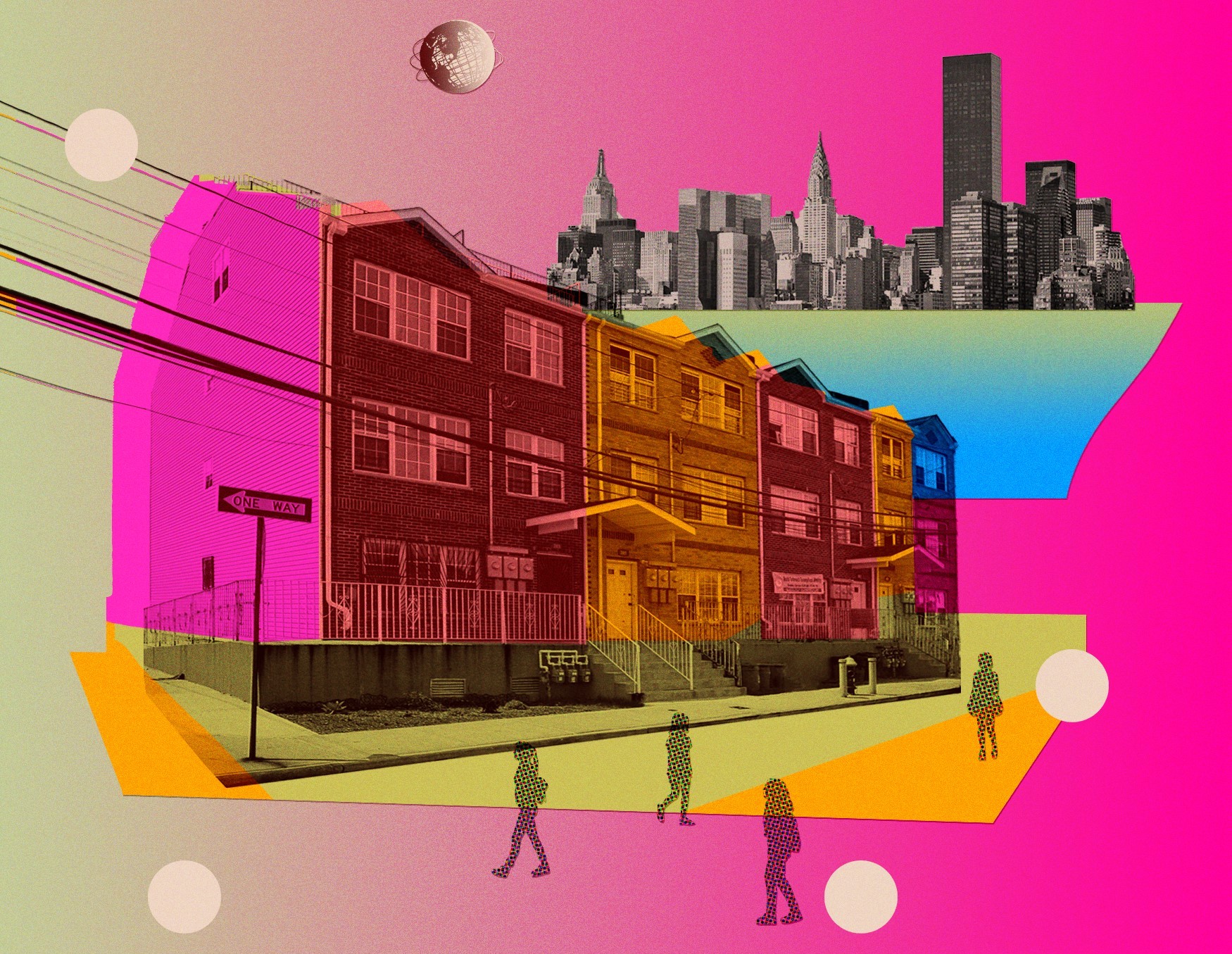the bodega project
Paying Homage to the Kings of Fulton in Brooklyn
In the face of white gentrification in Ocean Hill, t’ai freedom ford makes sense of the bodegas that betray us and those that sustain us

By t’ai freedom ford
Presenting the ninth installment of The Bodega Project, where authors from across New York reflect on their communities through that most relied-on and overlooked institution, the bodega. Read the introduction to the series here.
The hood determined to stay hood. Even when outsiders have other plans. We stay hood. Roll up in that new French joint on Malcolm X and sit at the bar. Order beers. Fries to go. Then, when the fries come boxed and bagged, ask for two plates. With hot sauce. And ketchup. Murder them plates with the vinegary red. Sop it up with French fry after French fry. Douse the plate and repeat.
This how the hood get down. Which means we don’t need no bodega facelifts for the new neighbors. No Plexiglas blinging like cubic zirconia. No hummus no shredded parmesan no pita chips no kombucha no neon-hosed hookahs. No fucking craft beers (okay, maybe a decent IPA). No organic nothing. This the hood. Or at least I thought it was.
They followed me. From Bed-Stuy. The Original Hood. The one Biggie and Jay-Z boasted about — toasted to. Then everything got bought up. All these modern monstrosities boxed up against our brownstone beauties. And suddenly a bunch of Caspers ghosting up the block. Rents blowing up like Baghdad. So we move. Another hood. A train stop away. Some call it Ocean Hill. Some say East New York. Borderline Brownsville. When I looked up the crime stats for the neighborhood, on a red to green scale from less safe to safer, our new apartment was all up in the red zone. Less safe. But that’s relative right? I scanned a list of reported crimes near this home:
Armed Robbery. @gunpoint. 2 Indian male perps fled.
Shooting/Stabbing. Person shot in left temple & EMS transporting victim to Brookdale hospital.
Grand Larceny. From Motorcycle.
Petit Larceny. From car.
Robbery. Bicycle.
Burglary. Residence Night.
Perp Search/Chase. MOS in foot pursuit, aviation requested.
And the list went on and on. For some reason I thought, Okay, I’ll be safe here. The hood will remain the hood.
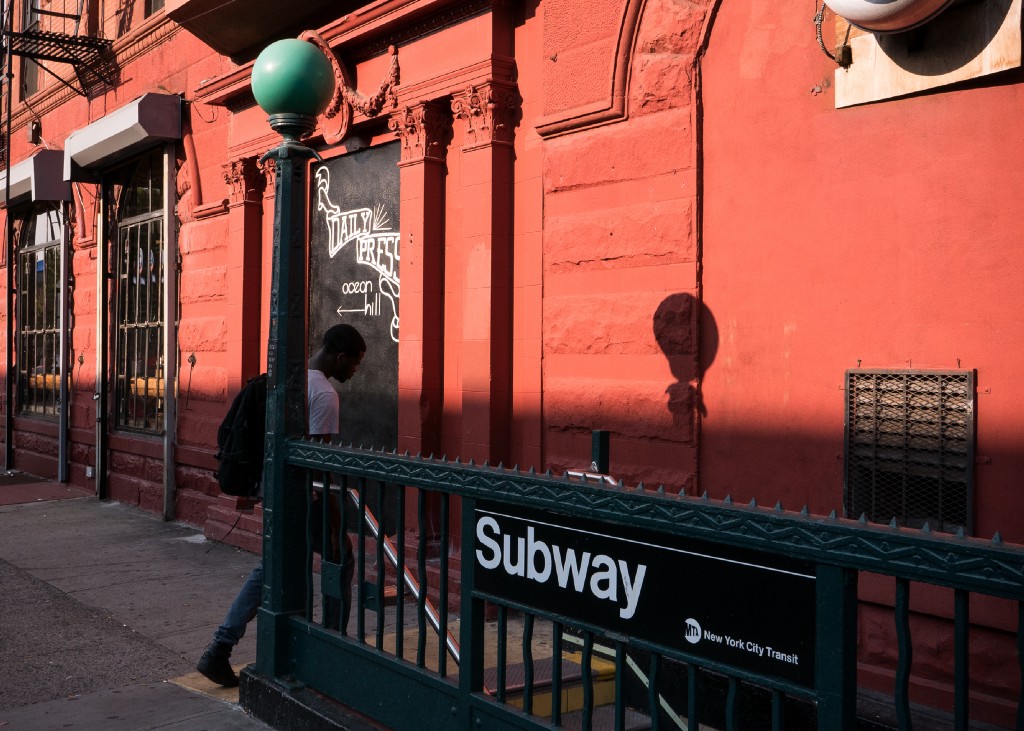
A year later I watch them come up from the train. White and transparent as a glass of milk. The luggage-laden Airbnb’ers, with their pale skin, black socks, and white-white sneakers. They look lost at first — twirling themselves in circles, looking at the phone in their hand like it’s a compass. The blue-haired girl with thigh tats and a nose ring. The bald guy with a ratty knit cap, beard, and cut-off pants. They look hella comfortable bouncing down Rockaway Ave with their newly adopted pitbulls. They act like they grew up here: chilling on stoops with their coffee mugs and their New York Times, bleaching the block with their blatant sense of entitlement.
Don’t get me wrong. I shop at Whole Foods and Trader’s and greenmarkets and food co-ops same as the new neighbors. Hell, I’m bourgie AF. The kind of girl who appreciates artisanal goat cheese and fresh figs, purple basil and heirloom tomatoes, olive focaccia and aged balsamic vinegar. The kind of girl who throws cocktail parties and dinner parties and tea parties. The kind of girl who’s inevitably humbled when she must make a last-minute hustle to the bodega for aluminum foil… ice… safety pins… cranberry juice. In those instances I’m reduced to basic bitch. Bodega hood chick. And I’m okay with that.
Cause you can take the girl out the hood, but you can’t take the hood out the girl. Plenty of times, after a night of bourbon and boogieing, I’ve rolled up in the bodega for a chicken vegetable Cup O’ Noodles or can of Beefaroni. I’m not ashamed to say that I’ve ordered a deli sandwich through a Plexiglas window at three something in the morn. But bodega runs is in the blood. Cause back in the day, you thought you were grown when your moms would send you to the bodega by yourself. Back before restaurants and sneaker boutiques and art galleries were all clamoring for the name, and the street cred it now conjures.
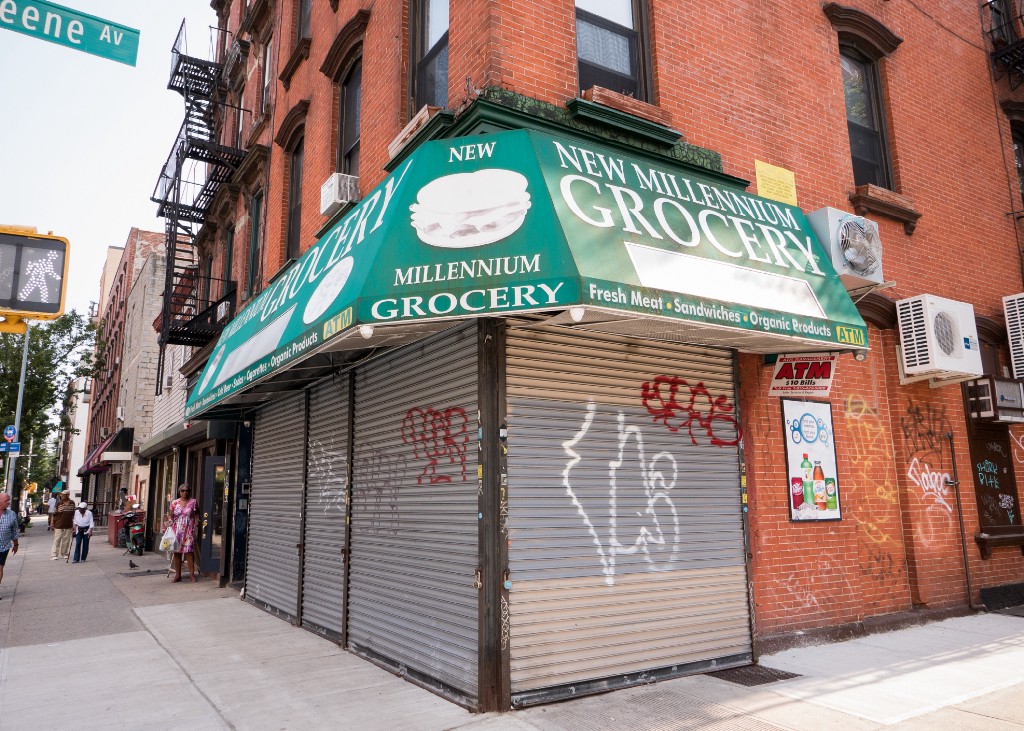
Growing up in the projects of Astoria in the 1980s though, bodega was not a part of our ghetto vocab. We called them corner stores, and the two we frequented were known simply as the front store and the back store. The front store sat on Astoria Boulevard directly across from the “Welcome to Astoria Houses” sign. On our way to school we’d stop in to buy Salt and Vinegar Bon Tons and hot pickles, Charleston Chews and Chick-O-Sticks, quarter water juices and Italian ices. When our mother sent us to the front store it was most often for loosies (three for a quarter), packets of Kool-Aid, or the coffee-colored pantyhose that came in a plastic egg. The back store was on First Street, a shadowy block lined with broken down private houses. In one of those houses lived Charlie, this white boy with cerebral palsy who pulled from his father’s tobacco stash to teach us how to roll and smoke cigarettes. Our mother didn’t really like us going to the back store. But the back store had the best spiced ham heroes, so we’d scour the projects to collect enough cans to sneak over for a sandwich every now and then.
Bodega was not a part of our ghetto vocab. We called them corner stores, and the two we frequented were known simply as the front store and the back store.
When we left New York for Atlanta in 1985, we found there were no corner stores, bodegas or otherwise. There were 7-Elevens, and what they called convenience stores, even though you had to drive miles to get to one. If you lived in the hood or in any Black neighborhood in Atlanta there might be a candy lady, which was like the hood equivalent of a teenager’s dream bodega. The candy lady stocked her own ziplocked bags of chips and crème-filled cookies, and penny candies like Tootsie Rolls or Jolly Ranchers. Plastic cups full of frozen Kool-Aid. Jars of pickles, which she’d fish out from the briny liquid with her long curved fingernails. Those candy ladies were probably the first Black-owned businesses I’d ever witnessed.
Living in New York the last seventeen years I’ve zigzagged all over Brooklyn, adapting to each new hood and adopting the perks and quirks of each new bodega. When I lived on Nostrand Ave, Big Vic used to sit on a milk crate in front of the beverage coolers scribbling through math problems. When I came into the store for a couple of beers he would say, “Ay yo, ma, don’t you teach? Think you can help me with this?” and I’d squint at his Algebra textbook and walk him through an equation.

On Franklin Ave, Mami and Papi owned the entire building that housed their bodega. Every morning at 7:57 they’d come down from the apartment above to heave up the heavy corrugated gate. Papi would listen to Yankees games on a little handheld radio, and when there weren’t any games that interested him he’d croon salsa ballads to Mami. While I practiced my Spanish on Mami and Papi, their son, who went to Baruch College, would be there on weekends helping out. I’d talk college and politics with him from time to time, noticing his perfect English, all proper and American and missing the music of his parents’ Puerto Rican accents.
Mami and Papi seemed to have everything crammed into that little store. Lightbulbs. Pork rinds. Electrical tape. Tube socks. Cat litter. Spaghetti sauce. They’d accept packages for me before UPS turned this into a formal service. They also knew the block’s gossip — told me about the strange white men who’d been snooping around my building. Eventually those white men would buy the building and send me packing once again.
Then Mami and Papi get some competition from the bodega down the street: New Millennium. The Dominican owner flirts with me and my girlfriends. Holds my hand when I hand him the money. I like this place because they have Sabra hummus and bags of pita bread in the deli case. The windows are crowded with organic popcorns and exotic flavors of kettle chips. I’m impressed. Maybe flattered even, until I realize these fancy foodstuffs ain’t for me. I mean, sure, I can buy them, but no one really cares if my black ass is impressed. This is the moment most people in a gentrifying neighborhood experience — when resentment sets in because all these improvements are for somebody else.
This is the moment most people in a gentrifying neighborhood experience — when resentment sets in because all these improvements are for somebody else.
Where I live now, the bodega is wack. No music. No one to practice Spanish with. No lottery when I’m feeling lucky and need a couple of Win 4 Life scratch-offs. No oatmeal when I’m trying to make peanut butter oatmeal cookies. We making nachos, but my bodega don’t have restaurant-style tortilla chips. And how come when I’m craving watermelon I can’t walk into my bodega and walk out with a big ass watermelon? Not diced-up in a cup. Not a plastic-wrapped wedge. Not watermelon Now & Laters. Not watermelon Arizona iced tea. I mean a whole, country ass watermelon.
Clearly I need to chill. Especially when there’s a dude on Atlantic near Saratoga selling gigantic watermelons out the back of a rusty pickup. And I need to remind myself that a bodega that could care less about the new neighbors is just what I’ve wanted all along.

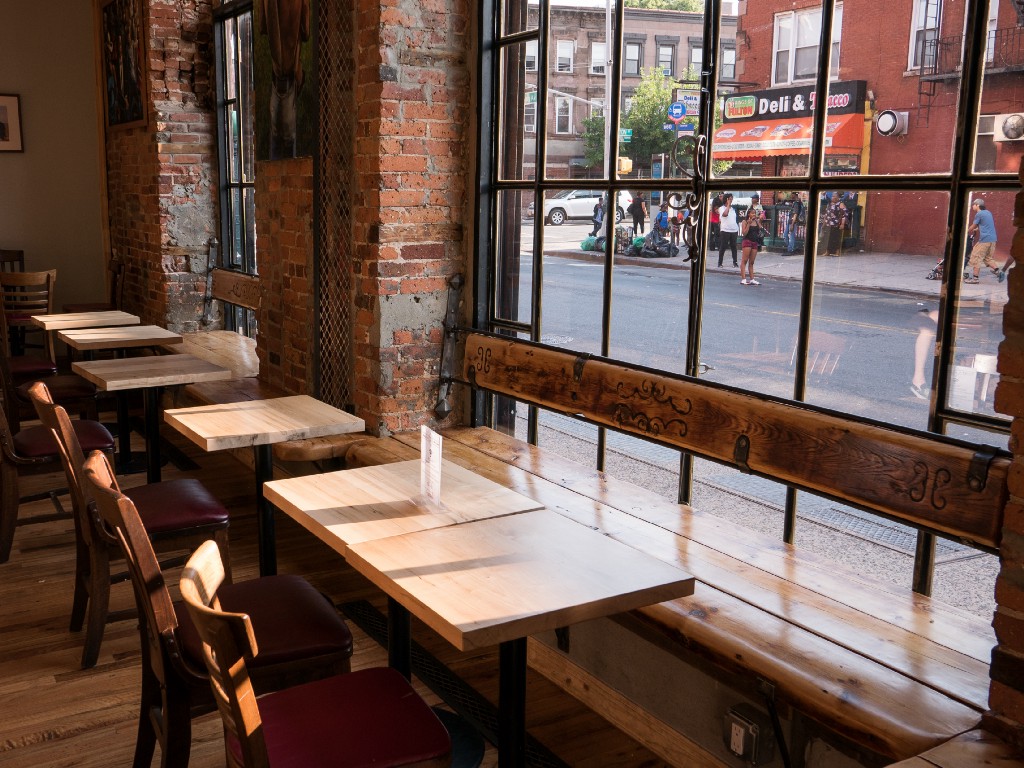
On Saratoga Avenue near Eastern Parkway there’s this bodega now called Hipster Gourmet. Sounds about right. You can see where they painted over the old word and plastered the word hipster on top of it. It makes me realize how even a bodega’s name matters.
My bodega is called Kings of Fulton. Its position on the block is not unlike a throne. The corner of Fulton and Rockaway Avenues is its kingdom. It’s flanked on one side by a bus stop, the other side, a subway entrance. The Yemeni owner keeps quarters in a brown paper bag worn soft and wrinkled like my grandmama’s hands. In spite of our complaints, us patrons are its loyal subjects. Even though there’s a sign outside that reads:
NO HANGING OUT!
This is a business and we
need space and tranquility
for our customers.
Please —
DO NOT HANG OUT HERE!
I’m like yo — this is a business in the hood. You can’t be expecting space or tranquility. Plus, the minute a hood dude buys a bag a chips, he becomes your customer. If he chooses to eat those chips over the course of an hour while standing outside then it is what it is. This is the county of Kings. Here, we all wear crowns.
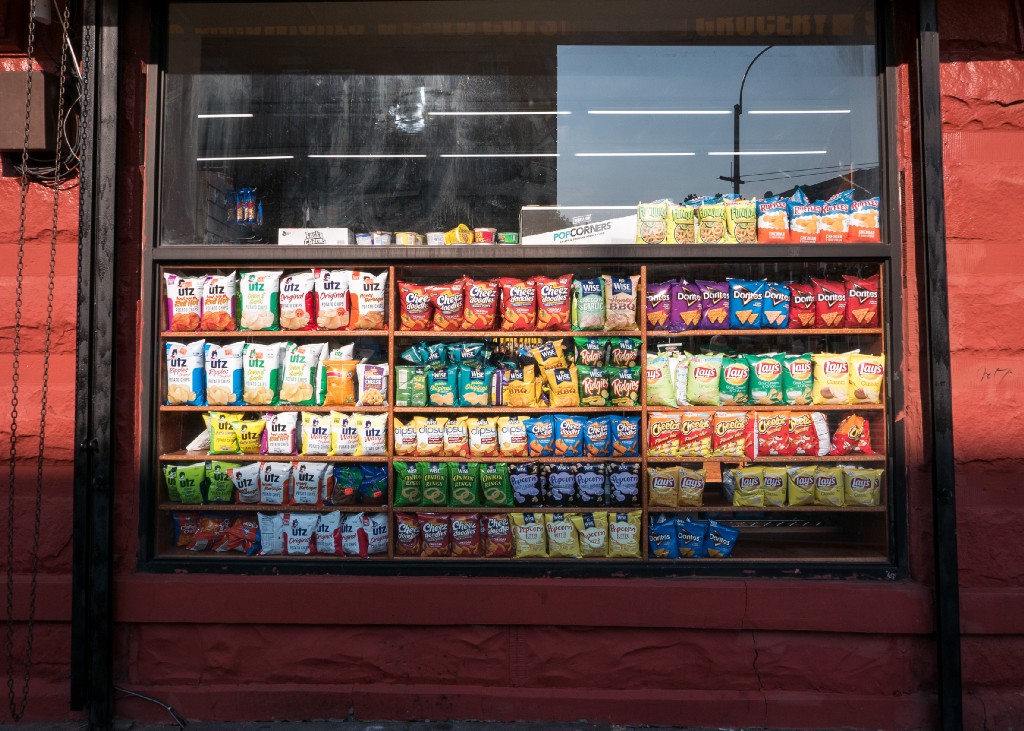
By the school where I teach, at the corner of Myrtle and Clinton Aves, there used to be a bodega my students affectionately called “The Sprite Store,” because it had a logo of the soda brand on its awning. But then the Sprite store moved to the middle of the block, and a restaurant my students couldn’t afford took its place. Now they loiter out front as they wait for the bus to come. Brown and boisterous they startle the pale patrons seated at the sidewalk tables, all the while respecting the architecture that subtly tells them they’re not welcome.
I ask my students if they would ever steal from their neighborhood bodega. They flinch and frown and shudder at the thought, Noo! They say. When I ask why, one student says, “Because I go there like everyday. They dead know me.” So, I ask, but what if you were broke and needed some food, a bacon egg and cheese or something. And she says, “Then I would just be like: bruh, hold me down.”
This is why, at the end of the day, bodegas are indispensable. They give us glimpses into worlds beyond the boroughs. They nourish and sustain us. They are the life of the party. They wash our clothes. They clean house. They feed stray cats. They give us credit. They anticipate our random ass needs. And sometimes they betray us. Spiffy themselves up for the new kids on the block. But mostly they hold us down.

About the Author
t’ai freedom ford is a New York City high school English teacher and Cave Canem Fellow. Her first poetry collection, how to get over, is available from Red Hen Press. t’ai lives and loves in Brooklyn, where she is an editor at No, Dear Magazine.
–– Photography by Anu Jindal
Read other installments of The Bodega Project
The Bodega Project – Electric Literature
— The Bodega Project is supported by a grant from the New York City Department of Cultural Affairs.








